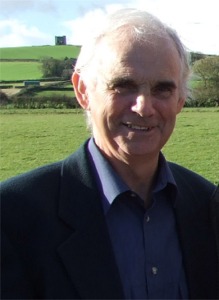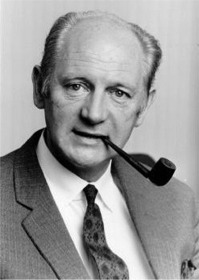Invasion of Derry “never a
possibility”
10.09.09
Events of 40 years ago
recalled
by Dónal Campbell, Inishowen
Independent
THE recent RTÉ documentary 'If Lynch Had Invaded'
provoked much debate as locals recalled the tumultuous
events on both sides of the border 40 years ago. When
Taoiseach Jack Lynch addressed the nation on August 13,
1969 his speech contained words interpreted as a promise
and a threat: “The Irish Government can no longer stand
by and see innocent people injured and perhaps worse.”
Many decoded that to mean the Irish army would cross the
border to help the beleagured Catholic population of
Derry who were under near constant attack from the RUC,
B-Specials and Loyalist mobs. |
Well-known Tooban man
Barney McLaughlin was serving in the Signal Corps of the
Irish Army Reserves in August/September 1969. He rejects
the presumption that the Irish army would have crossed
the border: “We [in the army] knew that was never a
possibility. In 1969 the army was not organised as a
fighting force – there was neither the training nor
equipment for that. It was a civilian army with
waistbands that reflected that fact! The British army
would have wiped them out.”
In Barney’s opinion, Lynch would have been well aware of
that probability when making his famous speech: “Jack
Lynch would have known the Irish army were not capable
of undertaking such a mission but may have hoped that by
using strong language attention might be brought to
focus on the plight of people in Derry and West Belfast
who were enduring grim times.Put it this way, if he had
sent the army in, it would have been to create an
incident rather than to fight.”
Barney spent four days based at Grianan while the Battle
of the Bogside raged a few miles away to the east. “We
manned a relay-station on Grianan to forward messages
from border-patrols – out looking for refugees – to a
temporary army base, known as Camp Arrow, |
 |
located outside
Letterkenny. Following that we were stationed at Dunree.”
For civilians it was a time of nervous anticipation. One
Burt resident who worked in Derry at the time, recalls:
“There were lines of traffic with people streaming down
from Letterkenny and beyond on their way to the border.
Respected community leaders from Derry – such as Finbar
O’Doherty – had spoken at open air meetings in
Letterkenny appealing for Donegal men and Irish soldiers
to come and support the people of the Bogside and Derry. |
 |
After Lynch’s speech there
was an anticipation that the army might go into Derry –
after all people were being batoned, shot at and
tear-gassed.”
“There was disappointment, on both sides of the border,
when they didn’t but in hindsight, it was probably the
right thing. Everyone knew the British army would have
been too experienced and too strong.” As it happened,
British troops did arrive on the streets of Derry on
August 14, and with the withdrawl of the police and
B-Specials tensions eased somewhat.
The Irish Government did deliver on the establishment of
field hospitals along the border – most notably at
Tooban, Muff and Carrigans. 400 people were accomodated,
fed and given medical attention in St Mary’s Hall,
Buncrana and the Plaza Ballroom. Around 40 people were
accomodated and given medical attention at the Fowler
Hall by the Red Cross under the guidance of Dr
Boyle-Kelly. These facilities were used extensively due
to concerns about possible breaches of confidentiality
at Altnagelvin Hospital.
Dances were held all over Donegal in aid of the 'Six
County Refugee Fund'. Even the proceeds of weekly bingo
sessions were diverted to the relief effort. It was a
tumultuous time in Inishowen with rumour and
counter-rumour |
|
the order of the day.
Allegations were made that “ex-Unionists” from various
parts of the peninsula were active in the infamous
B-Specials – although this was later rejected. |
|

